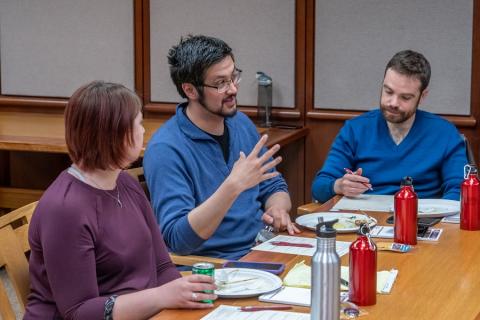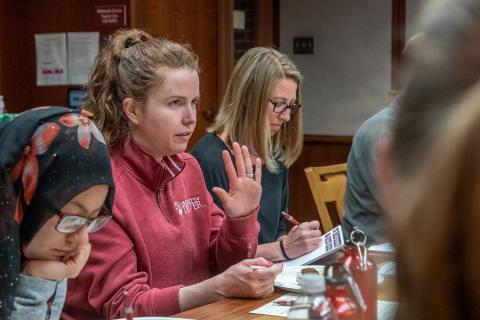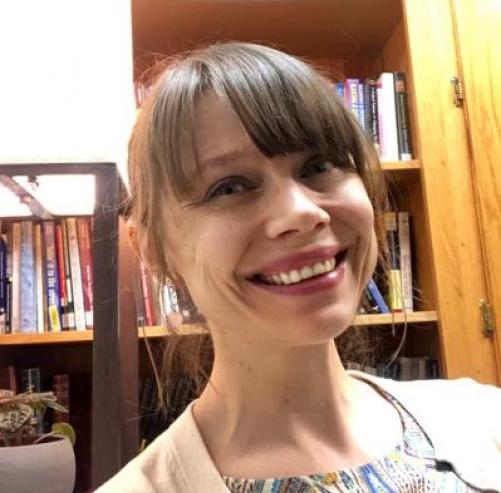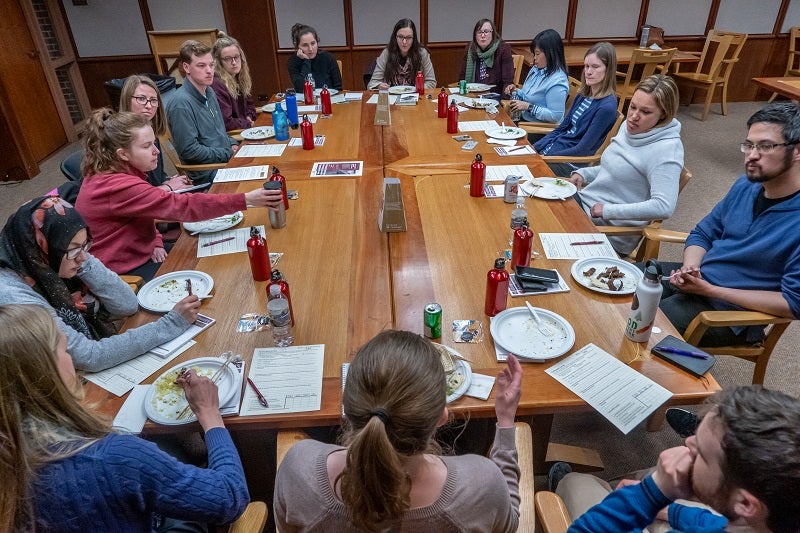A Community Table Tackles Local Issues Virtually
DU Grand Challenges retains momentum by moving its signature event online
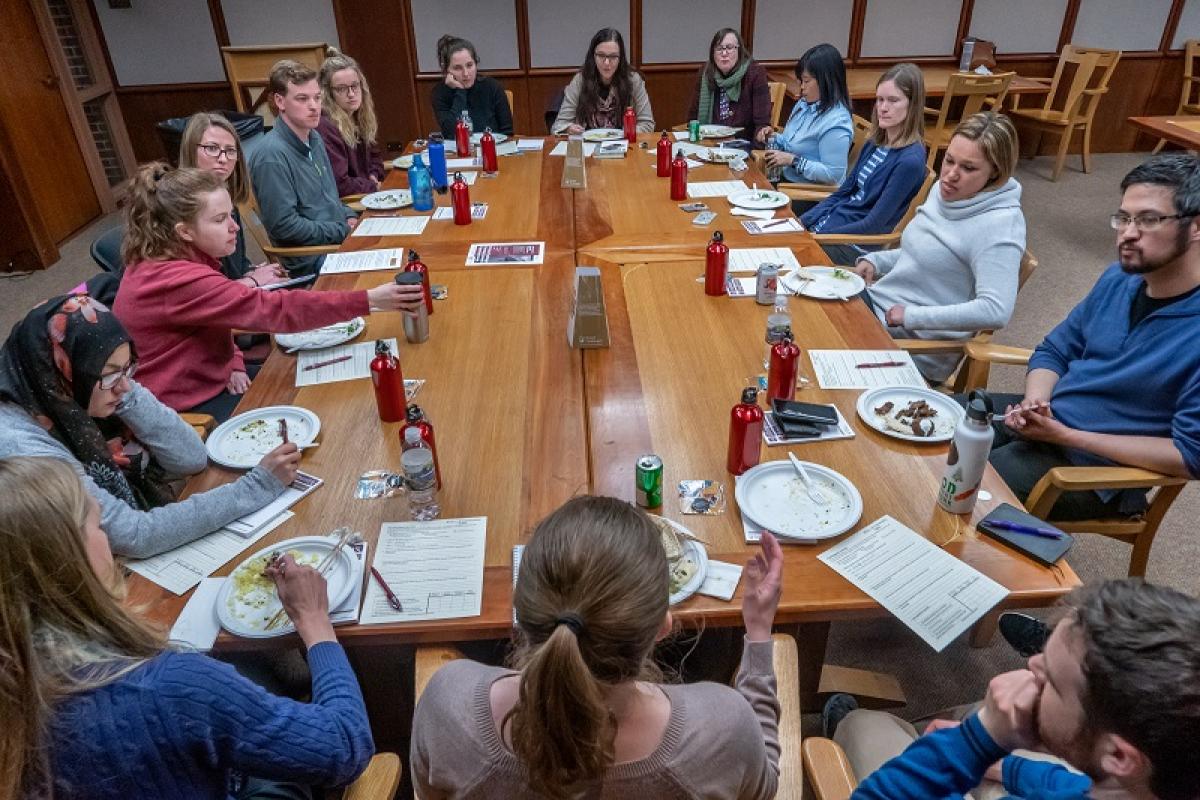
Technically, it only lasted for 24 hours. But the conversations at the University of Denver’s second annual A Community Table event — staged in April 2019 — proved to be just the appetizer for a year of meaningful, measurable change.
It all began when hundreds of people — students, faculty, staff, alumni and community members — gathered at small events around the world to discuss the challenges facing their communities. Together, they shared a meal or a snack, brainstorming ways to increase economic opportunity.
For this year’s event, DU Grand Challenges and the Center for Community Engagement to advance Scholarship and Learning (CCESL) is casting an even wider net. Faced with a pandemic of the novel coronavirus — and the challenges that come with it — A Community Table is going virtual and will last from March 30–June 11, the duration of DU’s spring quarter.
Register today for this year's A Community Table event
“With social isolation a very real risk as we physically distance from one another, we need community and connection now more than ever,” says Katie Kleinhesselink, manager of DU Grand Challenges, which hosts the event. “A Community Table is a tangible way for DU to combat stress and isolation, to share experiences, and look forward with community building in the wake of crisis.”
Indeed, part of this year's theme is strengthening connection to one another. Under the banner of "advancing deliberation and action for the public good," A Community Table is turning its eye toward the 2020 election. Goals include amplifying youth voice, deepening civic engagement and preparing new leaders.
All the materials necessary to host a conversation will be available online, along with how-to guides for using web-based meeting platforms and facilitating a virtual event.
As countless events across the country are canceled out of safety concerns, the online A Community Table figures to play an especially prominent role, bringing people together in pursuit of the public good, whether that involves Earth Day and sustainability or housing and homelessness.
As CCESL director Anne DePrince explains, “This year’s remote format shows what’s possible when we flex and problem solve in response to the challenges we’re all facing together. These remote conversations give us all a way to add our voices to planning for the future we want to build together, despite being in a period of such uncertainty and fear.”
Even as this year’s conversations begin, the ideas generated at previous A Community Table events have evolved into community-changing actions. The feedback from the inaugural A Community Table was clear: Participants wanted to solve problems together, through research, creative work and classes. With that in mind, CCESL created four Collective Impact Cohorts and put them in charge of making meaningful change.
For the last year and a half, groups of 16–18 people have been meeting regularly, drawing on their areas of expertise as they seek to improve daily living in their communities.
Nantiya Ruan Rogers, a professor at the Sturm College of Law and co-leader of the Housing and Food Insecurity cohort, found the mix of expertise particularly beneficial. “It brought to the table academics, staff, students and community members to address an issue that had been organically developed through the A Community Table process,” she says of the cohort. “I think that’s what really excited me as an academic. I don’t get to be in the field doing much research. To be able to meet with community members, as well as students and staff and faculty on a specific, very focused issue is exciting.”
What started as a broad area of interest was whittled down to an actionable project. After conducting research and gathering data, Rogers’ cohort joined forces with the Colorado Front Range Safe Parking Initiative. The group hopes to serve those forced to make the risky decision to sleep in their cars.
By securing public land and partnering with private parking lot owners, the initiative aims to be an in-between step as people search for permanent housing.
“Through the process that DU started,” says cohort co-leader Daniel Brisson of the Graduate School of Social Work, “we found an incredible community organization that’s doing incredible work. Rather than the University having a great idea and using the community to implement their great idea, DU found the community’s work [and used its resources to support it].”









